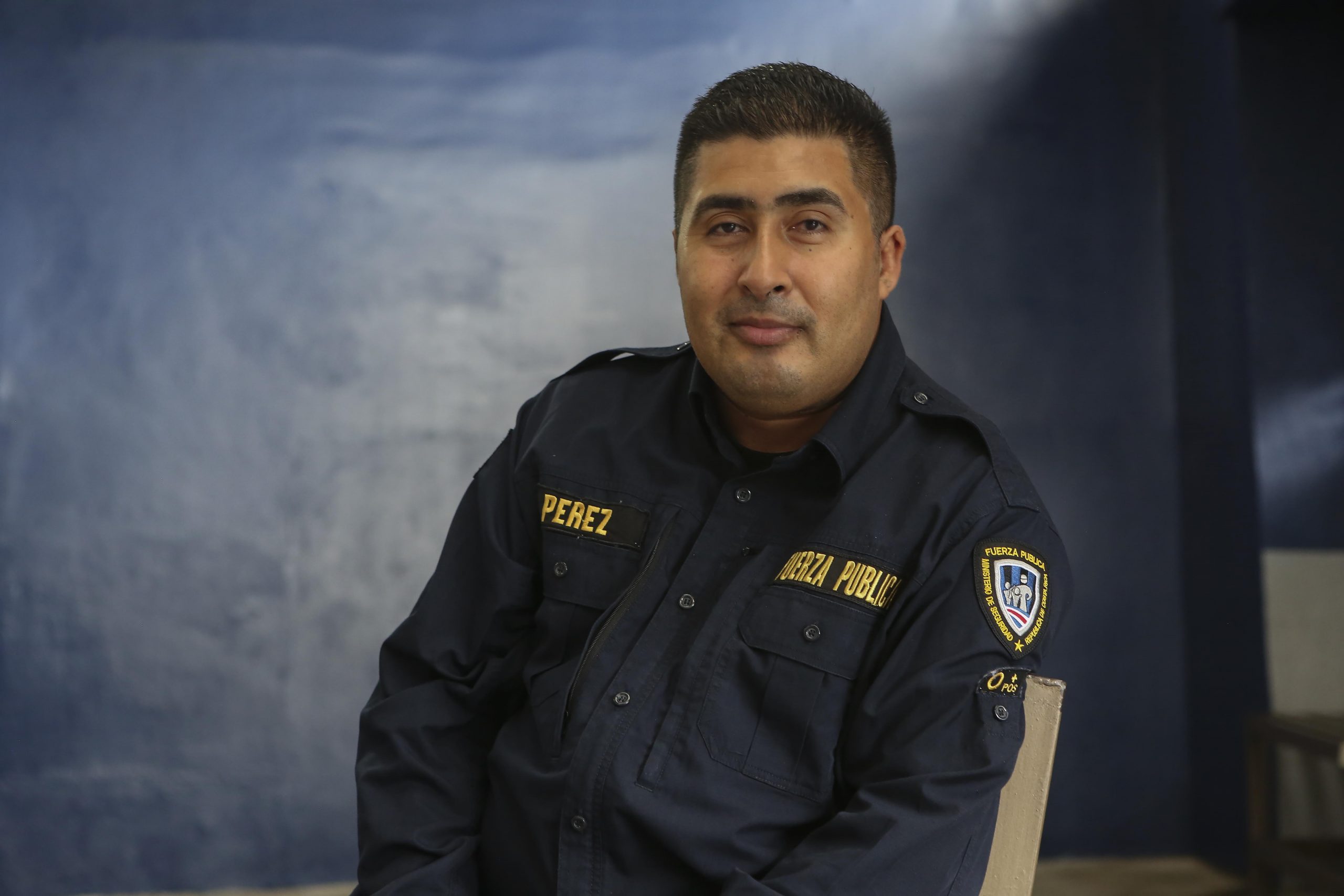An office where fingerprints are processed. A training for the administrators of public ports. The meeting room of a municipal government.
Sometimes, the work to make Costa Rica a more equitable and inclusive place takes place at the national level—but sometimes it takes place at the level of specific institutions and local efforts.
The reports that public institutions delivered to the Presidential Commissioner for LGBTI Affairs at the beginning of the year detailed the actions that some entities have carried out to train and raise awareness among their staff. Each entity’s work has been adapted to their specific contexts; in some instances, it was carried out thanks to the commitment of individual officials. Many of these efforts are part of the government’s Walking Towards Equality strategy, detailed in last week’s story.
At the same time, some municipal offices expressed their support for the struggles for greater inclusion and respect for the LGBTIQ+ population, such as the local governments of Goicoechea and Heredia, where—with limited resources and personnel—officials strive to generate change, little by little. It’s what is known in Spanish as “trabajo de hormiga,” the painstaking work of ants.
Police build respect within their ranks, and for the transgender population
Ronald Pérez has been a police officer for 22 years. From the moment he entered the police academy, he never hid that he was gay. He has always been open about his sexual orientation at the Ministry of Public Security (MSP).
Pérez says that during all that time, he has been treated with respect from his colleagues, with whom he tries to open spaces for dialogue on issues of respect for diversity in daily life.
This policeman, who works in the Department of Fingerprints of the MSP, has since 2014 been a member of the LGBTIQ+ Institutional Commission, which collaborates with trainings to increase police awareness about the rights of this community, as well as respect for the trans population of San José.
This is one of the peculiarities of this ministry that differentiates it from others, and that has led leaders to adapt the national training strategy.
“The relationship [the police] have with the trans population in the center of San José is something that happens only in San José, and a little in Jacó,” explains the Deputy Minister of Public Security, Eduardo Solano , who coordinates the Security Ministry’s LGBTIQ+ institutional commission. “There is a complicated and constant interaction between the trans population and the police, because they are often victims of discrimination, aggression and assaults, or sometimes they assault people.” Solano adds that there have been incidents of police discrimination against the trans population.
Together with the nonprofit Transvida, the MSP trains “police officers on awareness and proper police treatment of the trans population in downtown San José. We started in 2019 working on this awareness,” but the pandemic changed the dynamics of circulation in San José, added Solano.
This has prevented the MSP from assessing the real impact of this awareness-raising work, although the vice minister says that during the last two years, Transvida has not registered any complaints about police mistreatment, which may be positive evidence.
The pandemic not only affected this work but also the virtual training of police officers, due to their field work. “A police officer does not usually have an assigned computer or a telephone, and his or her tasks are in the street,” says Solano.
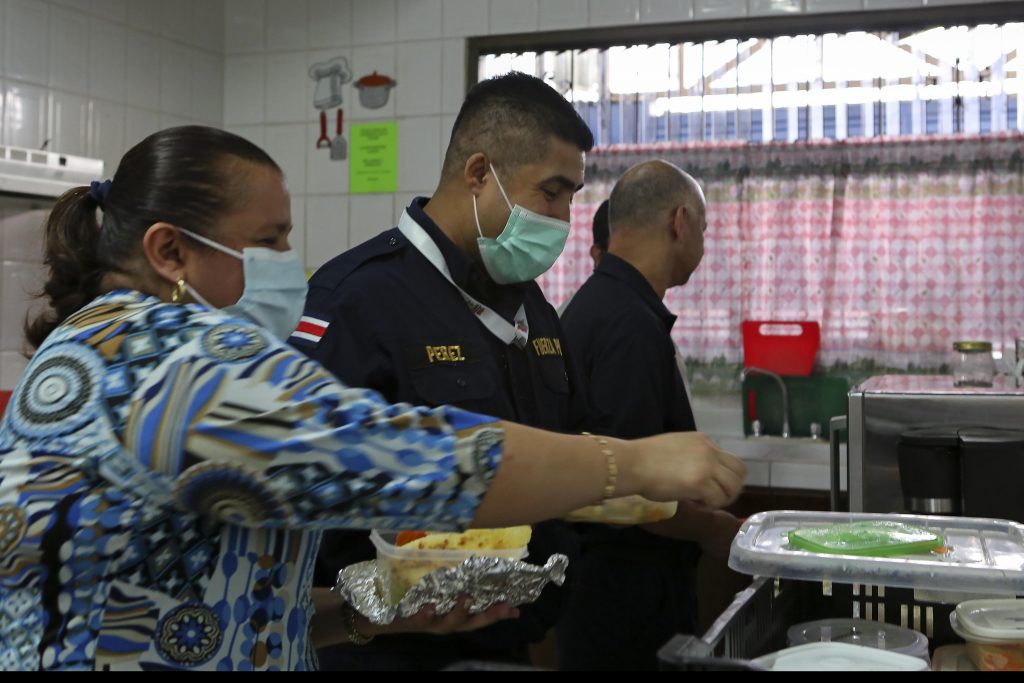
“We set up a computer lab in the police academy to train them. That was our initial objective, but the pandemic changed all of this because the workload of the police tripled and, in addition, having them in a laboratory implied an increased risk,” he adds.
As for administrative officials, virtual training was not affected, since they do have a computer and it has been possible to coordinate the space for them to take the course, Solano said. He calculates that about 1,000 people from all over the MSP have already been trained, of the 18,000 that make up the institutional payroll.
The ministry is now focused on training within the National Police Academy, with two training variants. The first is courses for new personnel—that is, including training in human rights for the LGBTIQ + population in the Basic Police Course.
The second variant relates to promotion courses that in-service officers must take. The ministry is working to include diversity awareness as part of this process.
Solano says he hopes that, in about five years, every police officer will be trained in the subject of the rights of the LGBTIQ+ population as well as healthy masculinity, an essential issue not only for the treatment of the diverse population but also for attention to problems such as domestic violence.

‘Sowing a little seed’
The Costa Rican Institute of Pacific Ports (Incop) is one of the entities that reports great progress increasing its officials’ awareness, thanks to a group of people that has been running workshops since before the national Walking Towards Equality strategy began.
In 2017, “a three-day training was carried out because this is a complex subject, full of prejudices.” The training sought to explain “that all human beings are equal and that regardless of creed, race, religion or sexual orientation, we all deserve respect,” says Marcela Lizano, coordinator of Incop’s LGBTI Institutional Commission.
Through films, lectures, and interaction among staff, “we sowed a little seed,” says Lizano, who notes that the commission is now focused on getting 100% of its officials to carry out virtual training. To date, it has been completed by 66% of its 79 workers.
An important achievement was the approval in the Board of Directors of a protocol for receiving and processing complaints of discrimination against LGBTIQ+ people, a procedure that was linked to the Office of the Comptroller of Services and in which general principles of respect are detailed, as well as sanctions in the event of discrimination.
However, Lizano says that “the most important thing about all this is that we always focus on raising awareness on the issue of human rights.” She says that she sees the fact that no complaints have been filed to date as a positive indicator.
Another institution that has applied additional actions to sensitize its officials is the Ministry of Planning (Mideplan), which, within its work plan for 2021, included eight virtual workshops on topics such as myths and prejudices associated with sexual orientation and gender diversity.
Officials’ role in guaranteeing inclusive public services, the prevention of violence against LGTBIQ+ populations, and the recognition of trans identities are among the issues explored, explains Maribell Chacón, who is in charge of the ministry’s LGBTIQ + Institutional Commission.
This work of constant awareness-building has also included the commemoration through posters and infographics of important milestones such as the first anniversary of marriage equality in Costa Rica or the celebration of May 17, the Day Against Homophobia, Lesbophobia, Transphobia and Biphobia.
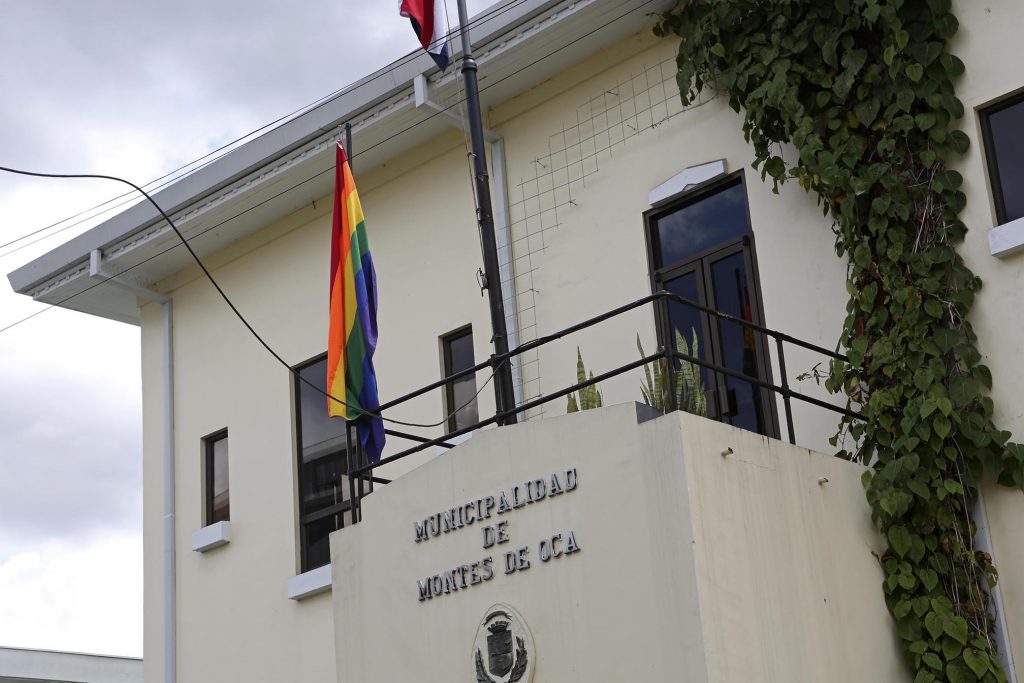
The work of local governments
Although work at the state level is important in raising awareness among officials, there is valuable “ant work” taking place within local governments to seek respect for the human rights of the LGBTIQ+ population, and others that suffer discrimination.
Local awareness-raising efforts seek to eliminate prejudices that, for example, could prevent a municipal worker from treating a taxpayer correctly regardless of their sexual orientation.
“Señora, God forgive you for what you are doing. You are converting our children.” With these words a mother approached Rocío Sánchez, head of the Diversity Office of the Municipality of Goicoechea, several years ago during an activity held to commemorate May 17.
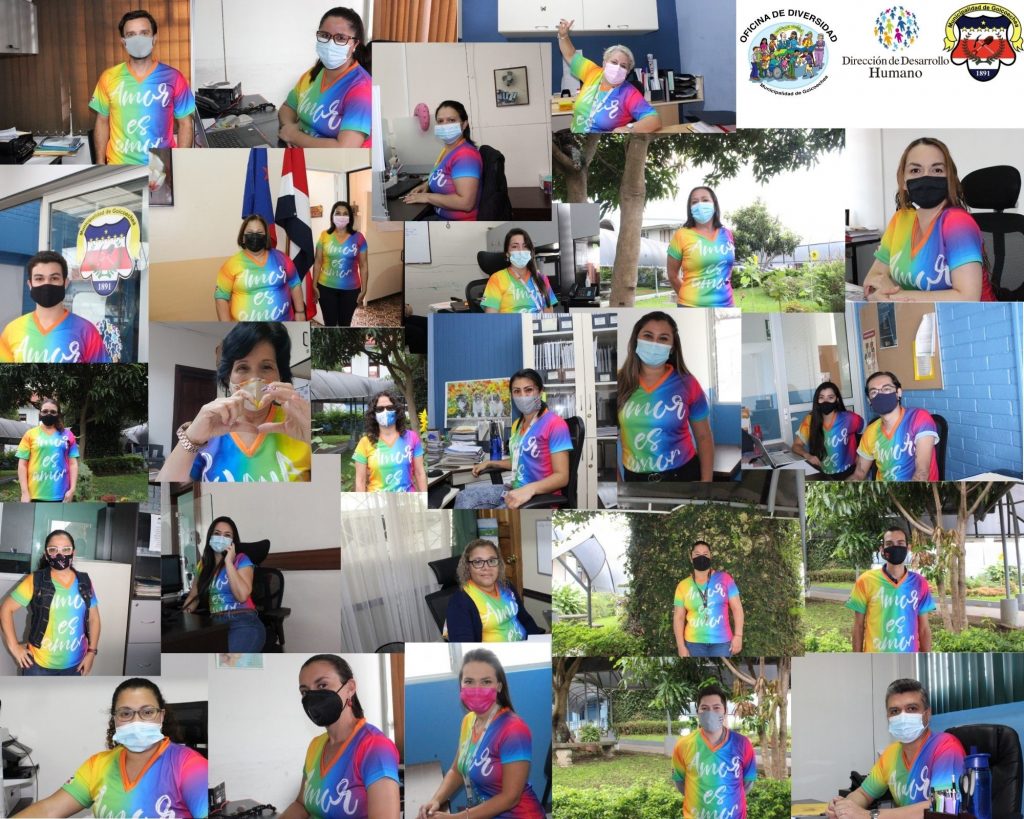
“At first, the issue of sexual diversity could not be discussed openly. There was resistance, which demonstrated the great need to work on the issue within all of the groups and populations we work with,” explains Sánchez, who provides psychological care on various issues from her office.
When this entity began its work, people did not get involved because “they were afraid of being labeled—not because it was bad, but because they did not want to reveal their sexual orientation. That generated a certain resistance. Now, however, people have taken over the office,” Sánchez says.
Sánchez describes the way someone used to place homophobic and lesbophobic signs on the posts around the Cantonal Sports Committee. “Every Monday I went around the committee building to remove those signs and file them, as a record of that hatred,” she says.
This psychologist and an assistant are the only two people who make up the office, but their success lies in the fact that, being part of the Human Development Directorate, they are supported by other offices such as the office for Women and the Elderly, and have built strategic alliances with civil and public organizations.
They have also held interfaith fora for several years to highlight the importance of inclusion. Representatives of the Lutheran, Catholic and Anglican Churches, and of Orthodox Jewish, Muslim and evangelical denominations have participated.
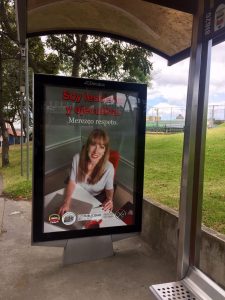
The office has carried out various campaigns, including one in which they made ads with photographs of professionals such as a lawyer, an office worker, a firefighter or executive who revealed their sexual orientations with the slogan, “I deserve respect.”
The reactions to the activities organized by the office are increasingly positive, Sánchez stresses, highlighting the work they have done with the Northern San José region of the Ministry of Public Education, with activities such as lectures, film forums and plays in which up to 150 elementary and high school students have participated.
The students “are very respectful. Yes, there is resistance from parents, teachers and administrators, but they have not been an obstacle,” says Sánchez. She says it is important to make these human rights issues more visible in order to overcome resistance in populations above 35 years of age.
The psychologist, who is working to encourage other municipalities to replicate this work, notes among her achievements the approval of an internal regulation against discrimination, as well as the declaration of Goicoechea as a canton free of stigma and discrimination. A total of 48 of Costa Rica’s 83 cantons have now joined this declaration.
The Office of Gender Equality and Equity of the Municipality of Heredia is working to create public policies that favor the rights of historically discriminated populations, now with a focus on gender, human rights and diversity.
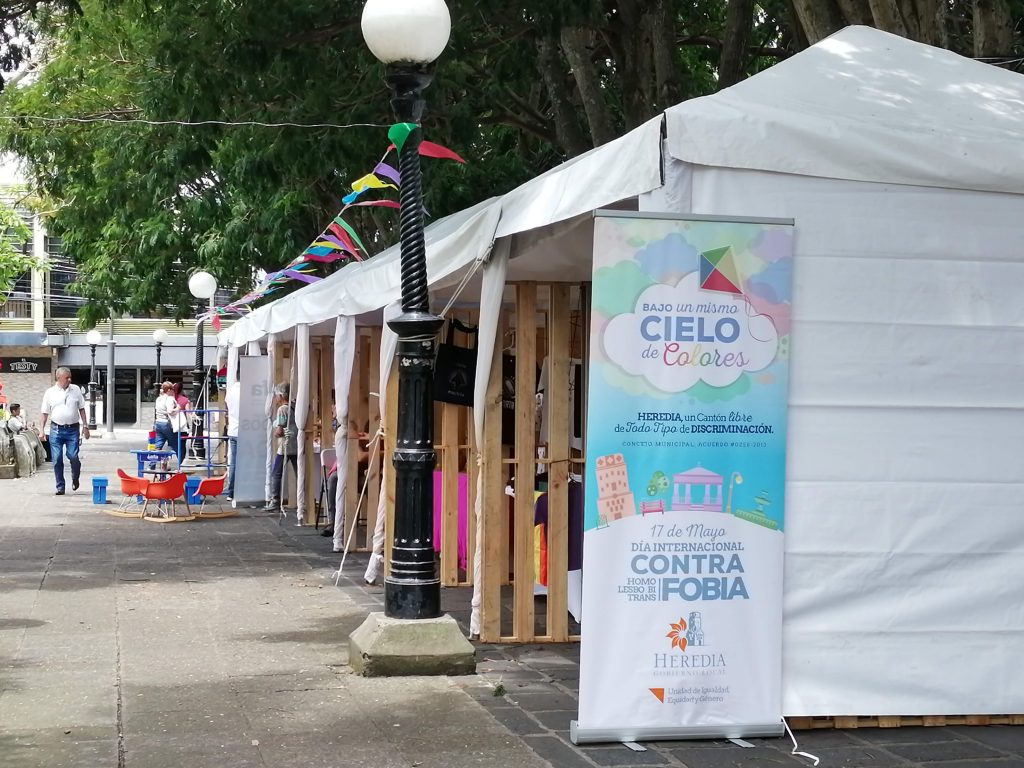
While trying to manage their budget and human resources as effectively as possible, the six people who work in the office—which addresses numerous issues in in addition to diversity—have fought to ensure that the municipal development plan includes actions in favor of the human rights of LGBTIQ+ collectives.
In 2010, with a view to creating the first equality policy, the office carried out an assessment that showed a lack of actions directed at the LGBTIQ+ population, explains Estela Paguaga, in charge of the office’s inclusive social management.
According to Paguaga, one of the greatest needs they identified was to work at the family level, since “family members, especially the mothers, spoke of not knowing how to handle or support their children after they made disclosures about their gender or sexual orientation.”
The office opened a therapy group to support relatives of LGBTIQ+ people, thereby recognizing “that the issue is in the environment. We need much more loving and inclusive environments.” However, participation was very low and the group had to be closed.
The reason? One explanation they offer is the fact that Heredia is an “extremely conservative province. The families know each other,” so sometimes, out of shame, people don’t want to talk about these issues with their neighbors. “It happened to us a lot in women’s support groups,” added Paguaga.
The office placed recognition of the rights of the LGBTIQ+ population in gender policy on the municipal agenda, and by 2013 “we achieved the declaration of the canton as a place free from all forms of discrimination, by gender, ethnicity, nationality, religion, by academic level,” she explains.
This declaration is commemorated every year in the profile of the institution, within the framework of the celebration of May 17, as a way of contributing to the “change at a cultural level that must be done” and for which “the regulations serve as a protective framework that allows us to claim rights.”
This is a way of raising the visibility of an issue that was not discussed before, even though it has always existed in the province, Paguaga says, emphasizing that including the issue in the Municipal Development Plan, with the agreement of the Municipal Council, has guaranteed that diverse populations will be taken into account on a long-term basis.
The Office for Gender Equality and Equity is now working on internal training and awareness processes that focus on the issue of human rights, the institution’s principles of equity, and the idea that a municipal official’s role is a professional, not a personal one.

“We have had people who tell us, to our faces, ‘I ask God to strike you down because you do sinful things,’ which shows us how far we still have to go,” Paguaga pointed out, stating that of the 320 people who work in the Municipality, only a third have received training.
“The training process that is required is very challenging. Every year we convene training on issues of human rights of diversity,” and there have been many negative responses, she explains, while still stressing the positive impact on the people they have managed to train.
Paguaga adds that they will continue to fight to make officials aware that they must carry out their work with respect, that if “a trans person comes to pay taxes, I have to call him by the name he is giving me, not by another. I cannot look at him indiscreetly or make fun of him.”


